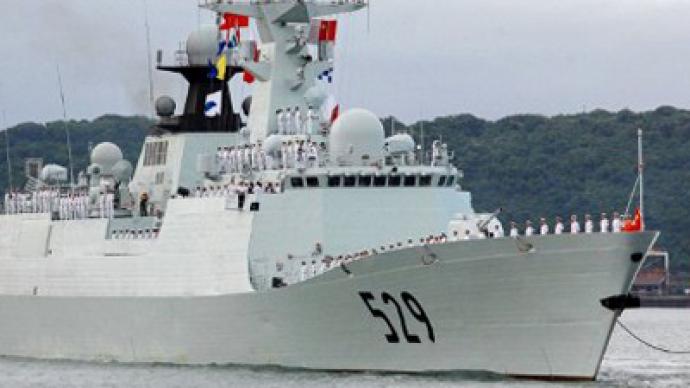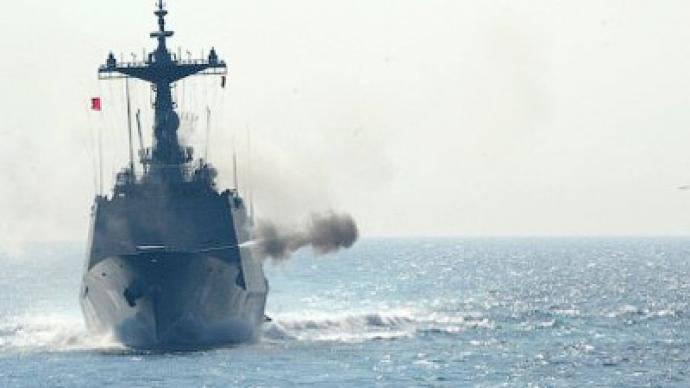China has refuted claims that troops in the country’s south are preparing for war over a territorial dispute with the Philippines. However growing warmongering rhetoric in the Chinese media is heightening tensions in the region.
The row centers on tiny islands in the South China Sea which are believed to sit on massive oil and gas reserves."The reports alleging that the PLA Guangzhou Military Area Command and the Navy's South China Sea Fleet have entered combat readiness are not true,"the Chinese Ministry of National Defense said in a statement on its website on Friday.Despite the government statement there have been online reports that China ordered troops in the Guangzhou region to the second highest level of combat readiness.The long-standing maritime dispute over the Scarborough Shoal came to a counterpoint when Filipino authorities attempted to arrest the crew of Chinese fishing vessels in the area. The Chinese government has accused the Philippines of wantonly escalating the situation, Vice Foreign Minister Fu Ying branding the government’s stance as a “serious mistake.”Chinese media have emphasized the government’s readiness to respond to anything the Filipino side does on the issue. An article written by Zhou Erquan, an associate professor at the College of the Air Force Command published in China Economy called on the government to attack the Philippines “otherwise they will not awaken.”China claims sovereignty over what it calls Huangyan Island as its historical right, and accuses the Philippines of consistently rattling the saber.Manila insists the island falls under its jurisdiction as it lies within its exclusive economic zone.Over 300 protesters rallied in front of the Beijing consulate in Manila on Friday, drawing the Chinese government’s ire. Activists waved flags and banners, protesting what they called Chinese intrusions into the Philippines’ territory.
The protests were immediately condemned by the Chinese government that labeled them provocations, accusing the Filipino government of encouraging anti-Chinese sentiment.The Filipino authorities refuted this, saying the protest was down “to private citizens who feel out of patriotism that they have to speak on the issue.”China has also pointed the finger at the US, claiming that the country’s increased presence in the region has given the Philippines the confidence to confront Beijing.“The US’ shift in strategic focus to the east and its entry into the South China Sea issue has provided the Philippines with room for strategic maneuver, and to a certain extent increased the Philippines’ chips to play against us, emboldening them to take a risky course,” said state media outlet Liberation Army Daily.The US began military drills in conjunction with the Filipino army in April in what has been interpreted by many analysts as a direct provocation to Chinese sovereignty. Rival claims on regions of the South China Sea from Taiwan, Brunei, Vietnam and Malaysia have made the territory a major flashpoint in Asia. Beijing claims sovereignty over almost all of the South China Sea and is likely to take decisive action so as not to lose face.


